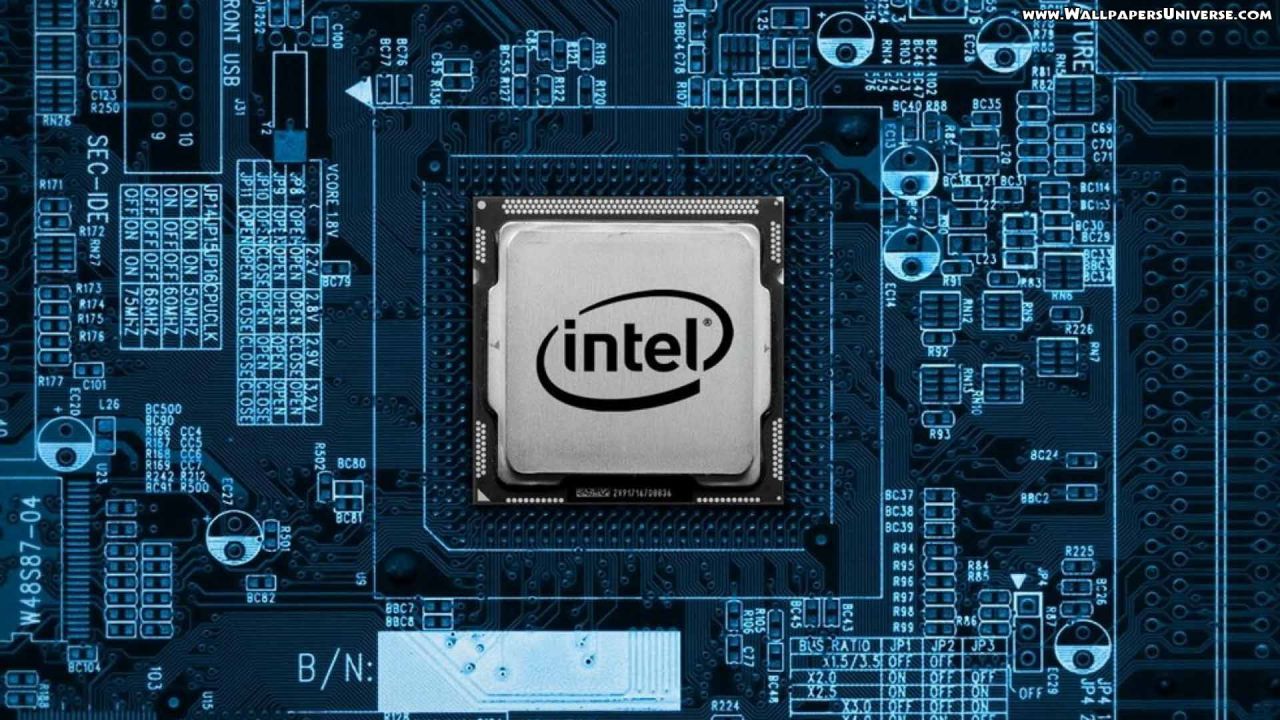Chip, all Intel’s aims with GlobalFoundries

Intel wants to buy microchip maker GlobalFoundries for $ 30 billion and become the "American champion" of semiconductors. All the details and reasons
According to the Wall Street Journal , US electronics company Intel is in talks to buy microchip maker GlobalFoundries for $ 30 billion.
BECAUSE IT IS IMPORTANT
Intel is the largest microchip (or semiconductor) maker in the United States, and one of the few companies that makes the chips it develops itself. Usually, in fact, the manufacturing phase is entrusted to specialized companies, which are concentrated in Taiwan and South Korea: the two absolute giants in the sector, which have enormous market shares, are the Taiwanese TSMC and the South Korean Samsung Electronics.
THE CONTEXT
Intel has the ambition to become the "American champion" of microchips, and is using the economic and political environment to try to achieve its goal.
On the one hand, for several months now a serious global shortage of semiconductors has been damaging the activities of many different industrial sectors, from automobiles to household appliances to consumer electronics (smartphones, computers, consoles).
The supply crisis linked to the coronavirus pandemic, combined with the tensions between the United States and China, has led many governments to invest in the creation of shorter supply chains – installed directly in the national territory or nearby – to guarantee the certainty of supplies of critical components for the economy and national security. And microchips, in fact, are essential to achieve the digital revolution, the transition to renewable sources and the transition to electric mobility.
WHAT JOE BIDEN WANTS TO DO
US President Joe Biden wants the United States to strengthen its position in semiconductor manufacturing and has proposed investments in "infrastructure", that is, in factories (foundries, in technical jargon).
The US Congress is debating a $ 250 billion technology innovation plan, the Innovation and Competition Act, which provides approximately $ 50 billion in funding to increase chip manufacturing.
WHAT INTEL WANTS TO DO
In recent months, Intel has announced plans to expand its advanced chip manufacturing capacity by investing $ 20 billion in foundries in the United States, Arizona.
Intel also aims to transform its business model and also become a chip maker for those companies that just develop them – such as Qualcomm – and delegate their construction to third parties. Intel essentially wants to enter TSMC and Samsung's market segment and compete with them.
WHAT GLOBALFOUNDRIES DOES AND WHO OWNS IT
GlobalFoundries is an American company that manufactures semiconductors, and is one of the most important in the world. It operates in North America, Europe and Singapore .
GlobalFoundries is owned by Mubadala, the Abu Dhabi sovereign wealth fund that manages assets with a total value of over $ 240 billion. Mubadala is looking for a buyer for GlobalFoundries, according to Reuters last month.
APPROVAL OF THE ANTITRUST
The Wall Street Journal writes that GlobalFoundries is not directly involved in Intel's negotiations. All parties – including Mubadala – made no statements.
Any acquisition of the company by Intel should be subject to scrutiny and approval by the US antitrust authority.
WHY INTEL COMPLAINS ABOUT TSMC
Absorption of GlobalFoundries' manufacturing capabilities would improve Intel's position relative to rivals TSMC and Samsung. However, both have announced substantial investments in advanced microchip manufacturing facilities in the United States: TSMC plans to put twenty billion dollars in Arizona for a 5-nanometer chip foundry; Samsung about 17 billion in Texas.
The US government has decided to support TSMC's commitment with a loan of 12 billion, in order to attract it: in fact, no other company reaches its levels of sophistication in production.
Intel CEO Pat Gelsinger, however, is not happy that his country subsidizes a competitor and has played the nationalism card. He said the United States should not help foreign chip makers, because they will keep their intellectual property for themselves and continue to build the most advanced plants in their countries. That is to Taiwan, in this case.
Gelsinger argues that Washington needs to look beyond immediate benefits and focus on developing domestic corporations, which are headquartered, manufactured and patented in America. The nation, he adds, must not "rely on foreign and insecure supply chains" for advanced chips: it does not say so, but refers to Taiwan, which is close to China and which in fact Beijing does not consider a country in itself but a part of its own. territory to be annexed.
This is a machine translation from Italian language of a post published on Start Magazine at the URL https://www.startmag.it/innovazione/intel-globalfoundries-produzione-microchip-stati-uniti/ on Fri, 16 Jul 2021 10:17:03 +0000.
